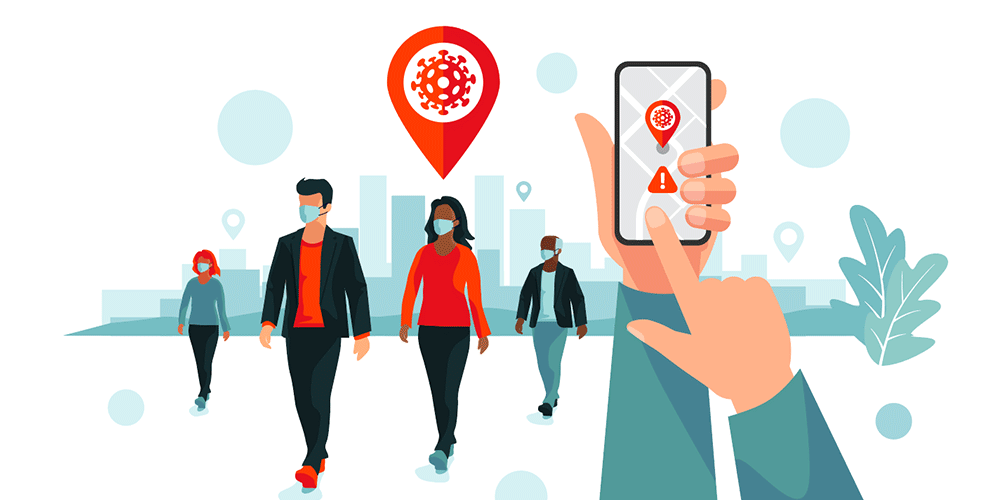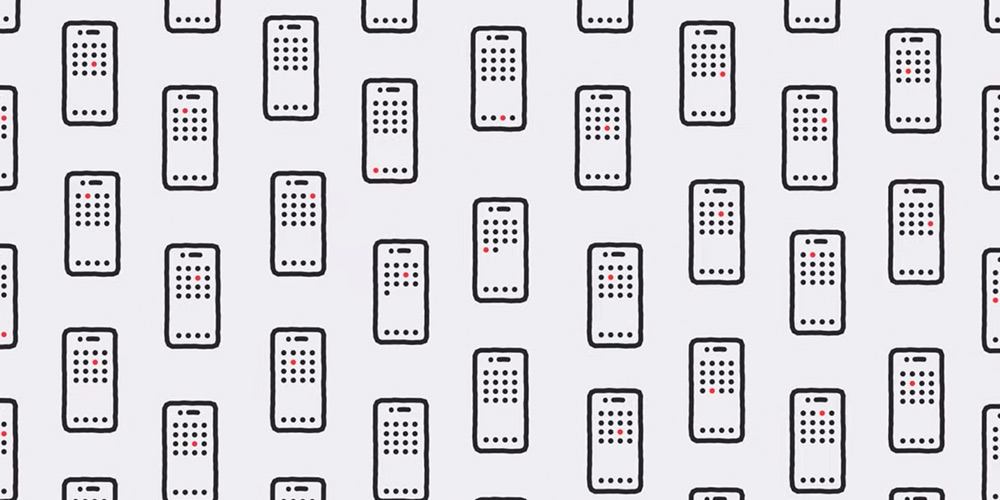When China first experienced the 'COVID-19' coronavirus in the late 2019, many people around the world hoped that it won't be on the news for long.
They were very wrong.
In 2020, most of the world has been affected by this disease, as it spreads virally from one person to another, crossing borders with relative ease.
Wuhan, the capital of Central China’s Hubei province that was the epicenter, quickly spread the virus, creating an epidemic, to then a pandemic.
The world braced for the worse, as more people are infected every single day.
Weeks past, to then months. Time flies.
Among the ways governments are trying to curb the spread of this disease, is by imposing lockdowns. Many urged people to stay at home, and avoid going to public places unless very necessary. And when it's really necessary to go outside, people are required to keep their distance from others, wear face masks and wash their hands thoroughly.
Another thing that governments use, is contact-tracing apps.

Many have urged citizens to install the apps in order to notify them if they have been in contact with anybody who tested positive for the coronavirus.
Contact tracing apps can be categorized into two: the first are apps that are lightweight and temporary, while others are pervasive and invasive. Then there are apps that developed locally by small groups of programmers, while others are created by big and global operations.
This is a good news, and also a bad news.
In the world where mobile phones are connected to the internet 24/7, apps like these have issues and challenges that needs to be addressed.
First, is the fact that not everyone installs the apps. And there is no way of guaranteeing that everyone will install the apps even if they are told.
Second biggest issue, is with the way it works.
Users can only be notified if one of the people they have had contact with were infected. This is only possible if those people also have the app installed, have been tested positive, and have their data entered into the app.
This is somehow ironic, considering that the effectiveness of the app relies heavily on the number of users. This is a challenge, simply because the number of app downloads is driven by people sharing thoughts when they are together, and for the same purpose.
In the time this crisis, many people are living in relative isolation, making fewer people in their bubbles.
What's more, finding out that you are a COVID-19 positive won't be the best of moment. And nobody can expect you to report the diagnosis into the app as quickly as possible, before you have contact with anyone else during the period.
This results to the decreased effectiveness of the app.
Both Apple and Google have taken steps to help contact and tracing apps work.
Newer versions of both iOS and Android have included a way for their combined 3 billion people to be alerted to exposures.
But still, they need to have an official app if they want to report a coronavirus infection. What's more, the method is opt-in, and requires users to turn on location and Bluetooth, both of which are toggles that should be manually switched on by users.
In other words, both iOS and Android need users' consent before the feature can work properly.
So again, another roadblock.
All the above didn't even include the challenges when dealing with children.
Children are prone to infection, not because of their less capable immune system, but due to the fact that the younger ones have yet to understand what an infection (or a pandemic) really is. They tend to be more difficult to control, or to maintain social distancing, or to not touch something they are not supposed to touch when in public places, for example.
And as school begins, this is even more critical.
When considering contact tracing apps, children also need to have the app installed on their phones, in order to make those contact tracing apps to work. What this means, children should be allowed to carry their phones around all day. This is another challenge that needs to be addressed.
With most being said, the next is privacy issues.
Both Apple and Google have taken steps by making contact tracing apps work cross-platformed.
While the two behemoth are doing what they can to urge users to activate the feature, with Google giving a thorough explanation to explain how this exposure notification works, and Apple giving the idea on how the feature maintains users' privacy, official apps that work with the feature don't come from either Google or Apple.
Acting as third-party apps on their respective platforms, they may have issues.
For example, contact tracing apps require the use of Bluetooth as a proximity signal. But if the app uses location data, it can create a privacy problem. This is like surveillance. Not everyone wants to be tracked, even it it's for the sake of their own lives.
Making thing even worse, is the secret key.
Secret keys are generated to ensure that the data a phone collects, stays on the phone. But if the app has bugs, or if the developers allow researcher to access users' data through the cloud, that data can leak or fall to the wrong hand. This is yet another privacy issue.
Things like these happened because as the COVID-19 pandemic rages on, technologists have been rushing on things.

To most if not all people who are involved, this crisis is the first for them.
This makes dealing with the pandemic, like venturing to the unknown.
People have the slightest idea of what's going to happen, before it happens. Little do people know about how these apps could really affect the society.
- How many people will download and use contact tracing apps, and how widely used do they have to be in order to succeed?
- What data will they collect, and who will they share it with?
- Where will the data be stored after being accessed by officials?
- How will that information be used in the future?
- Is there any guarantee or insurance that the data won't be leaked to irresponsible people?
- Are there policies in place to prevent abuse?
- How about bugs and tech-related vulnerabilities?
- Can users control the data that has been gathered? And to what extent?
- Is there any way for anyone to alter or modify the data?
- Can anyone use the data against the owner of the data under the authorities or officials' requests?
The questions can go on and on.
More will come when there are no clear answers.
But again, humans are social creatures that learn from mistakes and knowledge. Both of which are the results of time and experience. The more of the two, the better we can cope and solve this global issue together.